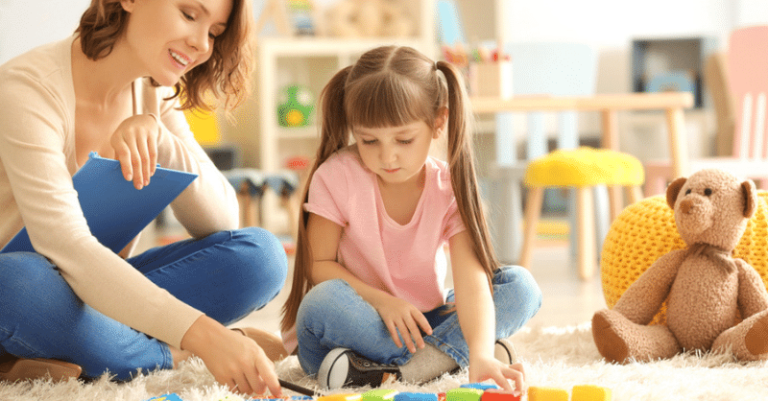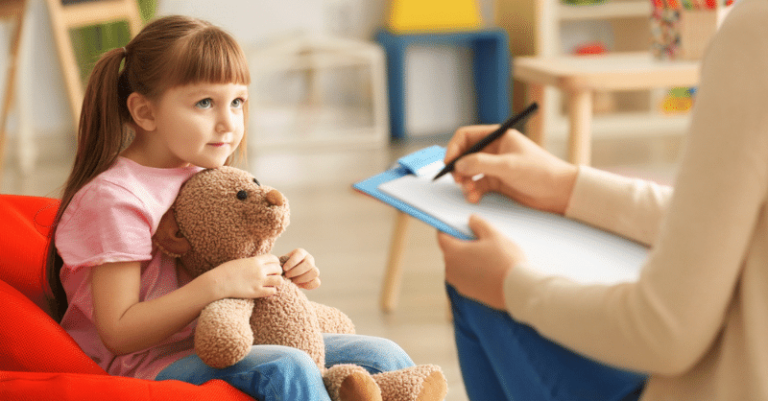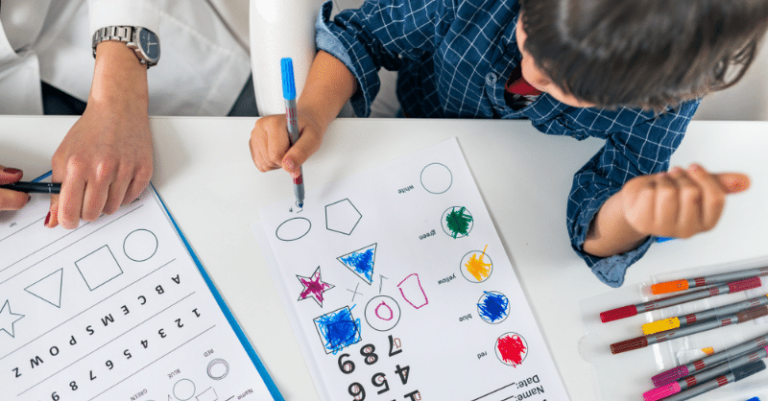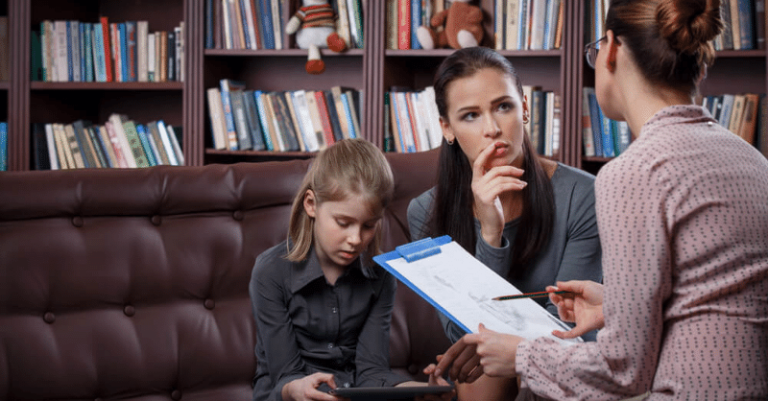Table of Contents
Do you want to work with children and help give them a better future? Then becoming a child psychologist might be a good option. But how to become a child psychologist? Child psychologists work using a multidisciplinary approach within a child’s context of life. They observe and analyse a child’s behaviour in proper situations.
Often times, we fail to attend to a child’s proper mental health development. As a result, children tend to grow up with mental health issues. It also damages a child’s emotional attachments. Child psychologists help children and adolescents overcome mental and behavioural problems.
Who is a Child Psychologist?
Child psychologists are trained professionals who work with children. They help diagnose and detect any mental disorders that a child might have. Also, child psychologists advocate for reforms that help in proper mental health growth.

Moreover, child psychologists also treat various developmental disorders. Also, they study mental health development from the prenatal period until adolescence.
Moreover, child psychologists study the environmental factors affecting the mental development of children and adolescents. And as a child psychologist, you can specialise in developmental psychology or adolescent psychology. There is another branch of child psychology known as abnormal psychology. Some major topics of interest for psychologists include personality disorder, genetics, sexual development, gender roles, and growth.
As a child psychologist, you can work with a range of clients. Your client base may include toddlers, infants, or children. You can decide which age group you want to work with. Make sure you understand the emotional factors and issues of the age group you decide to work with. Moreover, you have to diagnose and treat cognitive and developmental factors. So, how to become a child psychologist? We will discuss that in the upcoming sections.
What does a Child Psychologist do?
Before we discuss how to become a child psychologist, let us find out what role a child psychologist plays.

Even as a professional, they continue on researching about childhood and adolescent development. Child psychologists impart their knowledge and diagnosis based on continuous professional learning.
Also, child psychologists have the opportunity of working as a researcher or as a faculty member in any educational facilities. However, you can choose to be a full-time clinical practician and work with patients if that is what you want.
Besides, some administrative roles for child psychologists in the public health sectors are available. In addition, you can contribute to the policymaking of development programs. In public health sectors, you can design a curriculum that facilitates the development of mental and emotional health.
How to Become a Child Psychologist?
The profession of a child psychologist is a rewarding one. However, you need to undergo years of training. And you need to gain experience before you can start dealing with a patient. So, how to become a child psychologist? The goal of becoming a child psychologist is achievable. You just have to follow through the steps below.
Gain Educational Qualification
Getting your degree comes first to know how to become a child psychologist. To become a licensed professional, you have to attain a graduate degree from a university. In graduate school, it is better if you major in a narrowed and specific speciality.
Your subject of interest could be child development, cognitive studies, or child studies. In addition, a specialised degree will provide you with a broader scope of knowledge to work with.
By gaining a degree, you gain more insight into how child psychology works. And you will have a better understanding of your career prospect. Because many universities have separate career development programs. It helps you find your place in the workforce.
Make sure the degree of program you choose is accredited by The British Psychological Society. But, if your graduate degree is not accredited, you can take an accredited conversion course. It will help you to gain chartered membership on a graduate basis.
If you are interested in this profession, start looking into colleges and universities that offer child psychology-related majors. Some universities have a wide range of majors available than others. Moreover, you might need a PhD degree in research or clinical practice. A PhD degree will aid in reaching the advanced and top position in the industry.
Determine Your Field of Practice
To work as a child psychologist, it is necessary to have a PhD degree in the majority of circumstances. While doing a PhD you have to choose any one of the four fields of psychology as your focus area of research. It includes educational, developmental, clinical, and school psychology. Adolescent psychology and abnormal psychology are two other niche areas of expertise.
Doctoral programs are usually a vigorous combination of coursework, research, and field practices. You explore both theoretical and clinical perspectives in the doctoral program. This can take about 5 to 7 years. You should specialise in the field of psychology you would be interested to work in.
Adolescent Psychology
Adolescent psychologists deal with issues pertaining to teenagers. You will have to provide psychotherapy sessions. It will assist in behavioural modification of pre-teens and adolescents.
You have to address and tend to issues such as anger management, anxiety, depression, learning disabilities, and eating disorders.

As a psychologist, you have to develop a system of therapeutic techniques. And you have to maintain frequent communication with patients’ parents. A few noteworthy job positions in this field are,
Clinical Psychology
Clinical child psychologists assess and treat children. Clinical psychologists diagnose the type of developmental or psychological disorder a patient might have. There are opportunities to contribute to scientific and academic research pertaining to child psychological disorders. Noteworthy positions in this field are,
Educational Psychology
Improving the teaching and learning curriculum of educational institutions is the primary objective of educational psychologists. You will be suggesting changes in curriculum that addresses children’s psychological need in a better way. Some job positions of educational psychologists are,
Developmental Psychology
This area is concerned with interpreting child behaviour in a research setting. Psychologists conduct research and observe how ageing affects a child’s cognitive development. Also, developmental psychologists study a child’s emotional responsiveness.

Method of research includes structured interviews, systematic observation. Moreover, correlation exercises are often used to emphasise the impact of early development. Some noteworthy positions in this field include,
Abnormal Child Psychology
Abnormal child psychologists treat issues related to trauma, emotional and physical abuse. Issues of treatment might include sociopathy, personality disorders, mood disorders, psychotherapy, and anxiety.
If the trauma is severe, you might end up treating the child for the long term. In such cases, consult with parents and family so that the parents are able to comprehend the severity of patients’ psychological behaviour. Some noteworthy career positions in this field include-

Gather Experience
For practising or field experience, you can intern at a local school or health facility. Consequently, you can intern as a clinical researcher. You should keep an eye out for organisations that frequently recruit child psychologists. Do research on each company with enough time for the best pick. Organisations that may need child psychologists include hospitals, research centres, clinics and universities, among others.
Internships will allow you to work more independently. Often, you will be filling in and performing the duties of your supervisor. Moreover, doctoral programs make internships and practices mandatory for students. It is considered a part of your training as a professional psychologist. Supervised internship programs can typically last a year or more. Grow your network during the internship for future references.
Open Your Clinic
That’s the dream, right?
But you will need years of practice and experience before you can start on your own. You have to be excellent at what you do so that your clinic stands out from the rest. However, you can get a business consultant to handle the technical aspects of running your own clinic.
Make sure the patients you have treated down the line stays with you when you make the big leap.
Responsibilities of a Child Psychologist
So, you now know how to become a child psychologist. But what do you know about the professional responsibilities of a child psychologist? A child psychologist will have a wide array of responsibilities.

The nature of your responsibility may vary. And the variety will depend on which type of child psychologist you want to be. Some basic duties and responsibilities include,
Career Progression of a Child Psychologist
Now that you know how to become a child psychologist, let us look at the career progression. We will also talk about how much you can expect to earn as a child psychologist.
Qualifications related to child psychology is an ideal way to upgrade your skills. Your starting salary as a child psychologist will be around £31,000. Moreover, the pay can go as high as £98,000. The increment depends on your experience and the location of the practice.
If you are still unsure whether a career as a child psychologist is right for you, take an introductory course online. You can enrol in Child Psychology and learn with The Teachers Training. The course provides you with all the resources and advanced knowledge you need.
You will be able to better understand the children under your care. Moreover, the course will help you to pursue your role in social or community support, speech therapy, or counselling. The gained knowledge can be applied in your family life or at work.
Check out a Day in the Life of a Paediatric Psychologist and imagine yourself in her shoes. Let that life motivate you towards the path that is right for you.
Professional Training for Child Psychologists
Now that we have covered how to become a child psychologist, let’s discuss the professional training it requires. After completing your pre-clinical studies at the master’s or doctoral level, you can take professional training. It is necessary to master the art of psychotherapy. You can complete your clinical training at NHS or any other accredited training provider.

The duration of clinical training at the NHS is 4 years. The good news is that the training is paid at the level of the NHS band 6.
You will work at the Child and Adolescent Mental Health Services under NHS. During the training, you will,
Psychoanalysis and psychotherapies are essential to your successful completion of clinical training. Moreover, at the training, you will undergo a few sessions of personal analysis yourself. You have to register on the ACP Register of Child Psychotherapists after completing your training. It is an accredited organisation by professional standard authority.
Summary
Most child psychologists work in a multidisciplinary team and collaborate with other health professionals. Child psychologists come up with a tailored treatment plan for each child after extensive cognitive analysis. The secret to how to become a child psychologist is being mindful of accurate analysis.
Assess your goals and interest and see if it aligns with this rewarding profession. Sometimes, it might be difficult to explore the painful and traumatic experiences of a child. And you need to be empathetic and positively interact with them in stressful situations.





